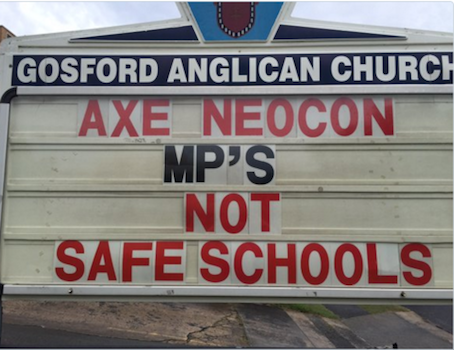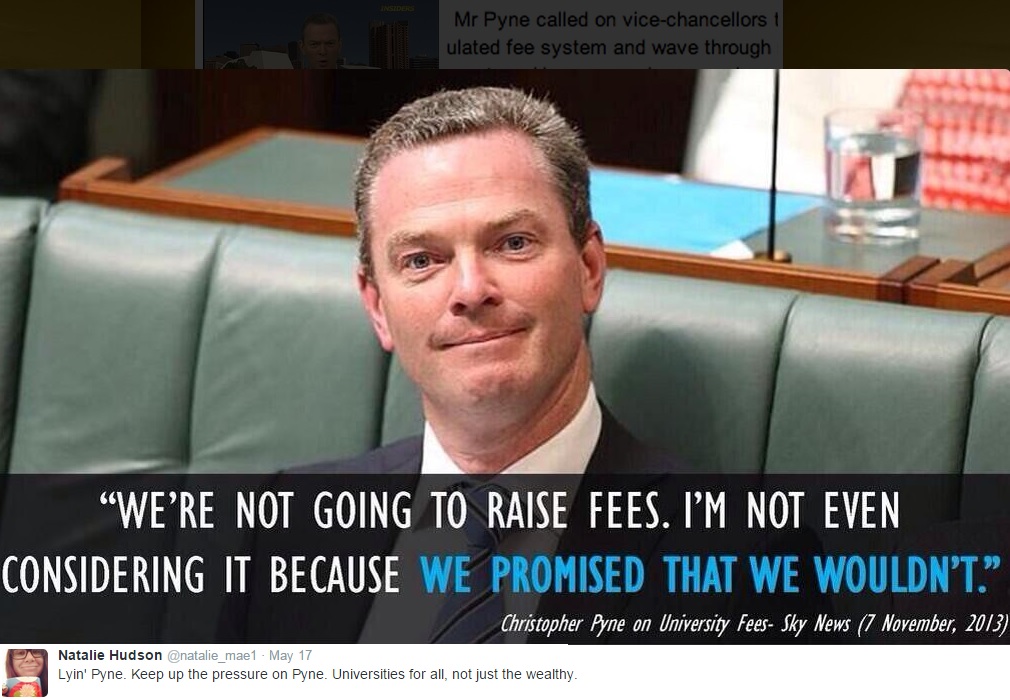Turnbull's dwindling authority was trashed further yesterday after he caved in to the homophobic hard right to gut much of the LGBTI schools anti-bullying program. Bullying victim, T.C. Lubcke, asks whether more young Australians will have to face a similar story to his.
THE FIRST punch to the face was always the worst.
I was punched, kicked and spat on all over my body as a teenager. But it is the feeling of the first hit that I remember vividly. It’s a difficult feeling to explain to someone who hasn’t experienced it.
It’s the combination of that intense dizziness you feel if you get up too quickly – when it’s strong enough to cause flashes in your eyes – with a violent shove and, of course, a sudden sharp pain from the impact point.
The rest just feel like a growing, all body, pounding, migraine. Time fails to make sense. You can’t tell how long you were there, how many times you were hit or kicked, who did what. Nothing. Just pain and meaningless noise.
And then the blows stop.
Often the antagonists yell, spit, laugh and carry on at this point. They don’t realise that you can’t hear it. There’s no sound but for a ringing in your ears that feels like it’s causing a rising sharp pain over your body.
For me, I always wanted to cry at this point, but I couldn’t. My body wouldn’t let me. It only wanted to gasp for air.
NO!!
— MarchAustralia (@MarchAustralia) March 18, 2016
"BREAKING: The Prime Minister has caved to conservative backbenchers and announced sweeping changes to... https://t.co/DeslZK2bd2
At some point, you realise that you are now alone and you pick yourself up.
Now you notice the blood. There’s blood on the wall. There’s blood all over your clothes. There’s a pool of the stuff under you. It’s terrifying to see so much of your own blood sprayed around you.
It was as I left the scene that I tended to break down.
I just wanted to die. This wasn’t some melodramatic teenage call out to the world, but a deep sense of just not wanting to face the next moment.
In some ways, these bashings weren’t the worst part for me.
I remember, after one of them, there was a meeting called with a school staff member. What had led to the attack was that I accidentally bumped a project piece placed on a chair next to me and it broke. The staff member made it clear that they were in complete defence of the perpetrators of the attack.
They were star students after all, while I seemed barely literate.
After that incident, I couldn’t face school for some time. It turned out that a handful of my “friends” had been spreading rumours about me in my absence which meant that I returned to further ridicule.
Other times, it was only a lingering threat of a bashing that left me certain that I needed to walk on eggshells to avoid it.
Twice, I was followed by a group of more than ten boys to an open space where I was pinned up without hope of escape. The first time, my father happened to be on his way to meet me and intervened. The second time, our neighbours – father and son mechanics – came to my rescue.
Throughout my youth there was also the long term judgement.
Why @TurnbullMalcolm can't govern at whim of the religious right, ultra conservatives & News Corp columnists. https://t.co/dCaOcVd8XY
— Georgina Dent (@georgiedent) March 18, 2016
There was ridicule from the boys (such as the threats of being bashed or general name-calling); derision from the girls who openly laughed at my interest, and stated on many occasions, “why would I want to date someone like you?”; assaults on what was left of my confidence from teachers who relentlessly told me that I was unteachable, that I shouldn’t be as high a year level as I was, that I wrote with my feet, and so on and so on (an astute teacher at a senior college, when I was 21, had me tested to show that I have dyslexia).
I couldn’t even think of leaving this school for another one, because I was terrified of again being labelled the “new fat kid”.
By my twenties, after over a decade of reinforcement, I had come to accept that these widely held views of me were more valid than my own.
Twice in my life I came very close to suicide.
The first time was when I was 16. I made a connection with another human being who seemed to value me for my thoughts and interest and strung me along for a number of months as I poured my soul out. Eventually, I was informed that I had been a running joke. A pathetic loser who was great for a laugh.
A Handy Reminder That Tony Abbott’s Government Launched The Safe Schools Program https://t.co/Nv024nxnw2
— Mark Di Stefano (@MarkDiStef) March 16, 2016That evening, in despair, I made what, on reflection, wasn’t a very well thought out attempt.
Taking all of this baggage into my 20s, I made no friends in university and subsequently hated every moment there. The few relationships I had found me so terrified of being alone that I refused to accept that we were bad choices for each other.
Eventually, at 27, I made a pact with myself to get my life in order by 28 or cut my losses.
I didn’t get my life in order over that year. However, I saw the ramifications of cutting my losses when a friend took his own life (for his own reasons). To me, he was, everything I wished I was.
I sought help at this point and was referred for cognitive behavioural training. Slowly, I finally got my life in order… as best as any person can.
The reason that I am disclosing my painful, personal history is because any initiative designed to tackle bullying and to educate teachers to better support vulnerable students is something I throw my entire support behind.
Learning differently was beyond my control, and it was neither recognised, nor acknowledged by educators until I was twenty one. I was utterly alone in the belief that I wasn’t stupid; every interaction I had with the outside world indeed taught me that I was the one at fault.
However, my situation was different. I don't wish to take anything way from the focus of the Safe Schools Program.
To endure the teenage years, realising that you may not be heterosexual, takes questions of personal identity to a whole new level. The exposure to bullying as well is far more immense (even for teenagers simply perceived to be gay or transgender).
When I hear arguments for the shutdown or gutting parts of the Safe Schools Program, all I hear is someone actively supporting peer pressure to suppress the development of young people into healthy, productive and happy adults. I hear a call for bullying as a mechanism to force other people to fit into a paradigm that they feel comfortable with.
That isn’t a free society. That’s not an Australia that I wish to bring my children up in.
In the first few weeks of my first year in High School, just before the first bell of the morning, two boys pinned me to the wall of a corridor while a third punched and kicked me to his heart’s content.
The bell rang and all of my peers piled on past me. A couple of them spat at me. A few more kicked my head as I curled up in a ball to hide the damage to my face as they passed (later I learnt that the wall was sprayed with blood as well). Many laughed.
None stopped.
I can’t stress that loud enough; no-one stopped when a 12 year old boy lay on the ground covered in blood.
As I finish writing this, on the National Day of Action against Bullying and Violence no less, it seems that those voices demanding the scaling back or even end of the Safe Schools Program have won.
Are more young Australians going to have to face a similar life story to me?
T.C. Lubcke has been writing on his blog, A New Anthropocene, since 2010 and can also be found on Twitter @Moth_NewAnthro.
Whatever happens with the Liberals' secret review, we'll make sure Safe Schools stays in Victoria. End of story. https://t.co/ztPHyOc4e4
— Daniel Andrews (@DanielAndrewsMP) March 16, 2016

This work is licensed under a Creative Commons Attribution-NonCommercial-NoDerivs 3.0 Australia License
Fascinating that PM Abbott refused to change the Safe Schools Program and PM Turnbull makes big changes. Everything Govt is weird.
— Margo Kingston (@margokingston1) March 18, 2016
Monthly Donation
Single Donation
Support independent journalism. Subscribe to IA for just $5.









